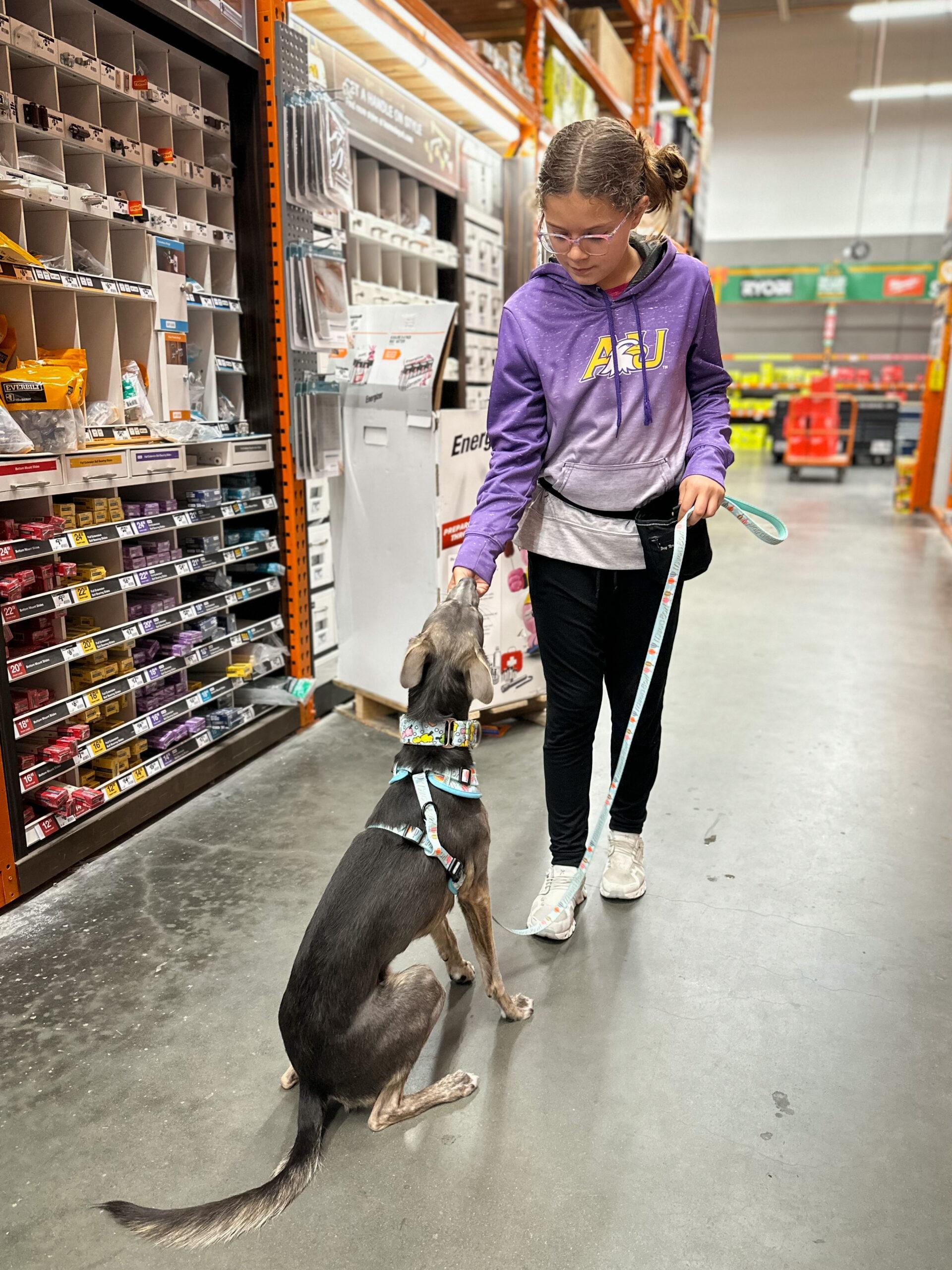Fun Activities to Improve Your Dog Training Experience
Fun Activities to Improve Your Dog Training Experience
Blog Article
Vital Tips for Effective Dog Training: A Guide for Pet Dog Owners
Reliable pet training is a diverse procedure that requires a tactical strategy tailored to both the family pet's temperament and the proprietor's goals. Key elements such as developing consistent commands, using favorable support, and helping with very early socialization play critical duties in promoting a well-adjusted canine friend. Nonetheless, several pet dog proprietors encounter obstacles that can hinder development, resulting in aggravation and uncertainty. Understanding exactly how to navigate these obstacles can dramatically enhance the training experience, ultimately changing the partnership between proprietor and canine. What are the vital techniques that can be utilized to make sure success in this endeavor?
Comprehending Dog Behavior
Understanding dog actions is vital for reliable training and fostering a harmonious partnership in between dogs and their proprietors. Pet dogs interact mostly with body language, articulations, and actions, making it critical for owners to interpret these signals properly. Acknowledging a pet's position, tail setting, and ear orientation can provide insights right into its mood. A wagging tail does not always suggest happiness; it can additionally signal enjoyment or anxiety.

Socializing plays a considerable role in canine actions; direct exposure to numerous environments, people, and various other pets can dramatically impact a pet dog's character. Moreover, variables such as type qualities and private personality should assist training techniques, as some breeds may have certain behavioral traits that demand customized approaches. By comprehending these components, proprietors can develop a helpful atmosphere that motivates favorable actions, leading to effective training results and a deeper bond with their pets.
Establishing Regular Commands
Reliable interaction with your pet dog starts with establishing constant commands. This foundational aspect of training is critical for fostering understanding in between you and your pet. Consistency in the commands you make use of makes sure that your pet dog can accurately connect particular words or phrases with the desired actions.
When choosing commands, choose clear, distinct words that are very easy to separate and state from one another. Prevent using similar-sounding commands that might puzzle your pet dog. For instance, using "rest" and "remain" is proper, yet "sit" and "hit" can bring about misconceptions.
Furthermore, maintain the very same tone and volume for every command. Pet dogs are delicate to vocal cues, so differing your tone can create complication.
It is similarly crucial to make certain that all member of the family get on the exact same web page concerning the commands utilized. A united front in command usage will avoid combined signals and enhance the understanding process.
Positive Reinforcement Methods
The power of favorable support in dog training lies in its capacity to encourage wanted habits via benefits and appreciation. This strategy is grounded in the principle that actions adhered to by positive outcomes are much more likely to be duplicated. By including positive reinforcement right into your training regimen, you can successfully form your pet dog's actions in a constructive manner.
To execute positive reinforcement, it's necessary to determine what encourages your pet dog, whether it be deals with, toys, or verbal praise. When your canine does a desired action, such as resting on command, quickly reward them with a treat or affection. This organization in between the command and the favorable outcome enhances their understanding.
It's important to timing the incentives properly; supplying the reinforcement within seconds of the preferred habits helps your pet make the connection (dog training). Furthermore, uniformity is essential-- guarantee that all relative utilize the same commands and benefit systems to prevent complication

Slowly, you can minimize the regularity of treats as your canine finds out the habits, transitioning to commend or intermittent benefits. This method not only promotes a strong bond in between you and your canine but also promotes a favorable knowing atmosphere, making educating an enjoyable experience for both.
Socialization and Communication
Consistently revealing your dog to a variety of environments, people, and other animals is critical for their social advancement. Socializing should start early, ideally during the vital home window of 3 to 14 weeks, when puppies are most responsive to new experiences. Older dogs can additionally benefit from ongoing socializing initiatives.
Present your pet dog to various setups, such as parks, pet-friendly shops, and urban locations. This exposure aids them adjust to different stimulations, lowering anxiety and fear feedbacks. Encourage positive communications with other pet dogs and people, ensuring that these encounters are safe and controlled to cultivate self-confidence.
Make use of structured playdates with genteel canines, as this can improve your dog's social abilities and instruct them suitable habits. Obedience courses and training sessions additionally provide outstanding opportunities for socializing, permitting your dog to communicate with the original source others in a supervised atmosphere.
Screen your pet's body language during interactions, as this will certainly assist you gauge their comfort level. Gradually enhance direct exposure to even more difficult situations while making certain that each experience is favorable. A well-socialized this hyperlink pet dog is more probable to exhibit balanced actions, making them a joy to have in any type of setup.
Resolving Common Training Challenges
Every dog owner will encounter training difficulties at some time, despite their pet dog's age or socializing degree. Identifying typical concerns such as stubbornness, diversions, and fearfulness can assist in developing efficient strategies for enhancement.

Gradually present diversions as the canine ends up being more proficient in commands. Short, constant training sessions are also efficient in keeping attention.
Terror can prevent a pet's understanding process. Gradual desensitization to the source of anxiety, matched with positive support, can help minimize stress and anxiety. Persistence is vital; never require a dog right into a situation that causes distress, as this may exacerbate the concern.
Inevitably, understanding and resolving these usual challenges with a structured strategy will promote an extra productive training experience, reinforcing the bond in between canine and proprietor while promoting effective discovering.
Conclusion
In summary, effective canine training relies upon a thorough understanding of canine actions, the establishment of constant commands, and the application of positive reinforcement strategies. Socialization plays a crucial duty in developing well-adjusted see here pet dogs, while addressing common training obstacles needs perseverance and adaptability. By executing these vital techniques, animal owners can foster a strong bond with their pets and promote preferable behaviors, ultimately leading to an unified connection in between humans and their canine friends.
Understanding dog habits is important for efficient training and cultivating a harmonious partnership between dogs and their owners.Socializing plays a significant role in pet habits; direct exposure to different settings, people, and various other pets can dramatically affect a pet's temperament.The power of positive support in pet training exists in its ability to encourage wanted behaviors with rewards and appreciation. By including favorable reinforcement right into your training regimen, you can properly form your canine's behavior in a useful manner.
In summary, effective pet training depends on an extensive understanding of canine habits, the establishment of regular commands, and the application of favorable reinforcement strategies.
Report this page